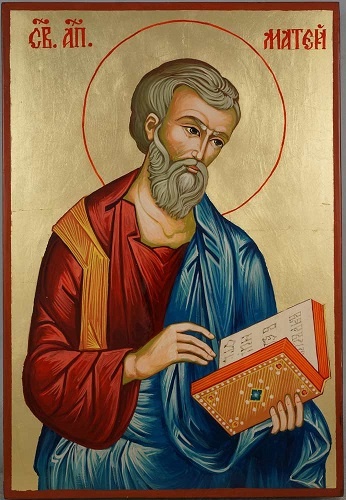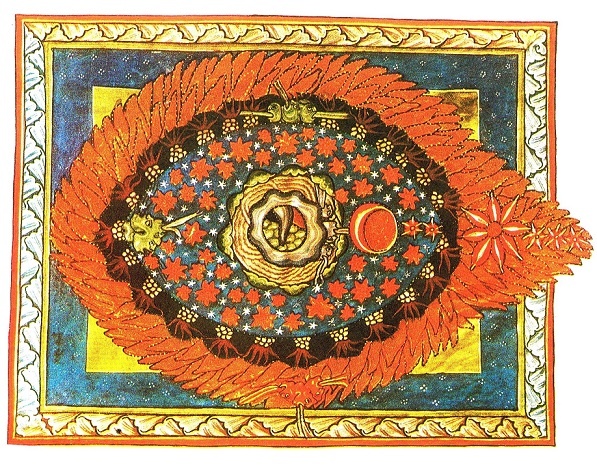
the Second Sunday of Advent
8 December 2019
Today’s readings were:
Isaiah 11:1-10
Psalm 72:1-7, 18-19
Romans 15:4-13
Matthew 3:1-12
Click here to access these readings.
This morning we get the story of John the Baptist. Not the whole story – we don’t hear about his later career and how he was killed – but a part of the story. And unlike most people in the Bible, we get a description of how he dressed and what he ate, each of which links him to promises of the Old Testament and a very ascetic way of life. We also get a taste of his preaching style, which is fiery and stirring and seems to begin with an insult. I mean, if a sermon begins with “you brood of vipers!”, you kinda know what sort of sermon it’s gonna be like. John is passionate, forceful, and in-your-face about the state of the world and the lives of the people around him. “Repent!” he calls out, and he means it, and he demands people listen.
Now, I don’t know about you, but all the yelling and anger and frustration kinda turns me off. When I hear people scream and yell angrily about something, I tend to turn the other way. And I think that’s true for most Episcopalians. We don’t have and usually don’t want fiery sermons. If I got up here and said to you all, “You brood of vipers! Repent!”, you’d probably wonder what’s going on with me. Episcopal and Anglican preaching tends to be meditative, thoughtful, and read from a page on a pulpit or music stand. And that’s cool, that the point. Episcopal preaching isn’t supposed to get you all fired up; it’s supposed to work God more deeply into your hearts and then lead you to the sacraments and the sacramental life outside the church doors. We Episcopalians are a bit more quiet about our preaching.
Which, like I said, is fine, but if we tune John out, if we ignore him because we don’t like that kind of loud preaching and pushy character, we lose something really important in our tradition and we miss a really important message. Now, when I was growing up, each time I heard the word “repent!” I had a very specific image. And that image was of a guy standing on the street corner with a sign around his neck yelling and screaming out the end of the world. And I saw this image when I went to college. Someone came to campus, stood in front of the student center, and proceeded to harass the students with words like ‘repent’, ‘sin’, ‘hell’, and ‘hatred.’ Two guys came to Sewanee, too, when I was in seminary, and they did the same thing. And the things that these guys said to the students, and especially to the female students, were truly horrible. I can’t imagine the damage and pain that these men inflicted on those students, and, at the time, I wanted nothing to do with words like ‘repent’ and ‘sin.’
And I still want nothing to do with such words – as those men meant them, that is. Such anger and such hatred are foreign to God. It’s not our jobs as Christians to break people and expect God to clean up the pieces. We do wrong, however, in ridding ourselves of the words themselves, because they mean quite a bit less, and quite a bit more, than when used by angry people to shout down those who aren’t like them.
But what is sin other than a swear word to throw at people? What is ‘repent’ other than a demand that you scream out without actually looking at the person you scream at? Well, let me tell you a story. While I was teaching abroad in Japan, I fell into a bit of depression. It happens with everyone who travels. It’s called homesickness. And the awful thing about being home sick is that it finds its way into every part of your life. Things depress you and you don’t know why. You get happy and often over-happy when you see things that even hint of home; once I became ecstatic when I found a bag of peanut butter M&Ms being sold at a convenience store. But, really, it’s about depression and having nothing to settle your sense of self on.
I was home sick a lot of my time in Japan, but this one time was the worst. My family dog, who we had had since I was a kid, had died, and I wasn’t there to be with him. I had no where to put my grief. I would go for walks, travel to the city and see sights, or even spend time with friends, but nothing worked. I couldn’t find a way out of my grief. But all this time there was this odd nagging feeling. It was like someone was yanking me to look at something, and that something was my bookshelf. But reading books and being depressed don’t go well with one another, and so I ignored that yank. And it kept pulling, every morning, every afternoon after I got back from work. At last I just got tired of it and said, “Fine, what!?” I pulled off the first book I saw, which was one by C.S. Lewis, and, miracle of miracles, it was exactly the book I needed.
I won’t get into how the book helped me in my grief. If you want to hear me rattle on and on about C.S. Lewis, grief, and my dog, ask me after the service. But what I do want to talk about is that yanking feeling. You see, the word “repent” in Greek is metanoea, which means “to turn away, to change one’s heart.” But often, repentance really means a turning to something. You see, God is always with us. That’s what Jesus’ traditional name, Emmanuel, means: God is with you. God is with us in our joy, our hope, and our love, but also in our grief, our sorrow, even our depression. And in these latter moments, God is always calling to us to turn to him, to turn away from the darkness of despair and turn to the light of Jesus Christ. Sometimes God is a voice in our heart or a feeling of being yanked, literally being pulled and turned towards something. At other times, God is a word from a friend or family member or even (this is true) a word from an enemy. And God’s word to us is always, “Turn to me.” Turn to Life, turn to Love, turn to Hope. Turn to God, whose face is Jesus Christ, whose breath is the Holy Spirit.
In our world, in our community, and in our very lives, we do have to be very serious about sin. Sin – being turned away from God and demanding that the darkness is more real than the light – sin is a very real and present danger. Now, there was no sin in my home sickness, and there was no real sin in my despair. Despair is something we suffer, and Jesus Christ came to help us out of that despair and enter into true and open healing. We sin, instead, when we use our frustration, or confusion, or our anger against others, when we forget that God is love and that that love is calling inside each and every person we meet. And this is reflected in our baptismal promises, where we promise to renounce all sinful desires that draw us away from the love of God and, instead, promise to turn to Jesus Christ.
It is often good, however, to define something with its opposite, and so I’ll end by doing this for the word “sin.” I just told you a story about two men who came to Sewanee and said some rather horrible things to the students there. They stood on the street corner and yelled at anyone they saw. I wasn’t there myself, and I only heard about it later. I can’t imagine how those students, especially the female students, felt when they heard those things. But here is the grace, and here is the turning. Those students, who were the target of all that hatred and anger, those students who had every right to be insulted and angry themselves, turned away from that anger. They approached these men, and they spoke to them in love. They denied the accusations that were made against them and their ways of life. They defended themselves gracefully, and defended those who did not feel they had a voice. They did not use violence, or hatred, or resentment, and showed themselves, instead, to be strong, hopeful, and full of compassion even in the face of those who hate and slander them.
And I am proud of those students. They may not have changed the minds of those two men, but they did something else. I think they gave their fellow students hope. They showed them, and us seminarians and the professors and the administration as well, that the way of Jesus, what presiding Bishop Michael Curry calls the Way of Love, is possible. It gave me, at least, hope and sight that love is not some weak, pliable thing, but that it has strength and goodness, for it stands on something firmer and deeper than any sin, and that is Jesus Christ. This, to me, is an example of true turning, true repentance, for it is a turning away from anger and hatred and a turning to life that never, never ends.




